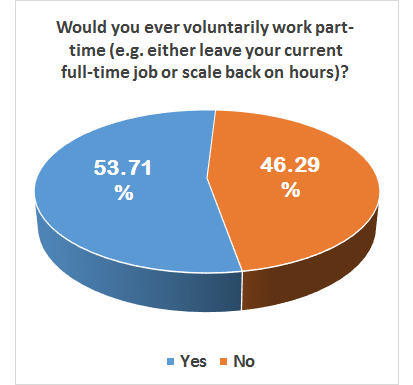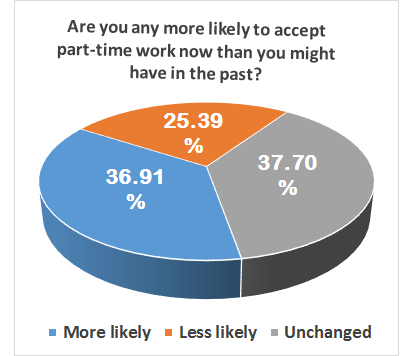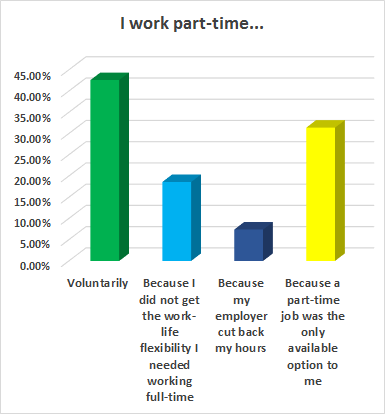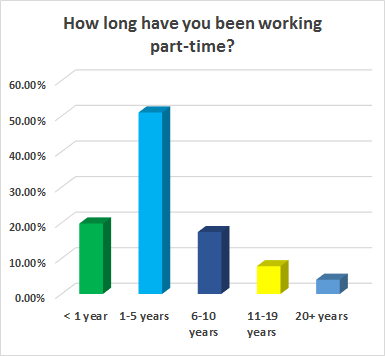Part Time Employment: A Rise in Popularity
Monday, January 4th, 2016 - HR Daily Advisor
The results of a recent survey by RecruitiFi suggest that the majority of American workers would rather take the flexibility of a part-time position than the improved compensation of a full-time job. As an employer, are you making the most of the modern workerfs receptiveness to working part time?
The survey, given to 1,012 employed participants, sought to answer the question, "How does Americafs workforce feel about flexibility?" The answer, it turns out, is that it values flexibility more than anything. If your organization prefers or needs to hire part-time employees, then this is great news. If, however, your organization relies on the full-time attention of its employees, you might have workers lured towards finding a different part-time job in the interests of flexibility.
Letfs take a look at some of the results of this survey.
What Matters the Most?
While "Compensation" was a serious contender for survey takers, "Work/life balance" was the most highly valued feature of the modern workplace. "Professional Development" and "Job Perks" were next highest after these two, with "Status" and "Mentorship" nearly tied for least important. Clearly, the workforce would rather be better paid and have flexibility than have harder-to-measure benefits like clout or the opportunity to develop.
Would You Choose to Work Part Time?
When participants were asked if they would be willing to leave their current job or willing to work fewer hours in the interest of flexibility, a slight majority (53.71%) said they would. The remaining 46.29% said that they would not be willing to work part time.
Have Things Changed?
Interestingly, workers are more likely to accept part-time work today than they have been in the past. In the context of other answers, the reason why probably involves the desire for flexibility. Another contributing factor likely involved is that workers are remembering the market crash and the difficulty finding jobs that it entailed. Better a part-time job than no job, after all.
Why Do You Do It?
As we can see, most people (42.60%) work part time "voluntarily." The second most common answer was that survey participants took a part-time job because it was the only job around (31.40%).
For How Long?
Part-time workers seem to be a temporary commodity, with the overwhelming majority (51%) answering that they have only been working part time for 1–5 years. If you do the math, the higher end of that spectrum would involve people who got jobs 1 year after the market crash through to people who only just now got jobs.
Tomorrow wefll explore a very important consideration for retention: engagement. Plus, an introduction to BLRfs HR Playbook, Employee Retention and Satisfaction: How to Attract, Retain, and Engage the Best Talent at Your Organization.




